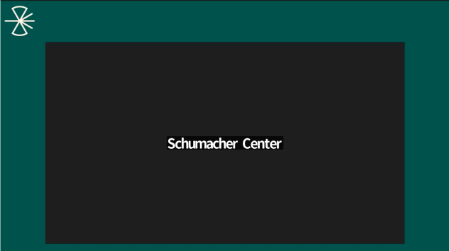Schumacher Conversations | Reimagining Economics for a Thriving World
January 2023

The video: 1:38:46
“Schumacher Conversations: Envisioning the Next 50 Years” brings together change-makers whose work today is actively shaping a ‘small is beautiful’ future, organized around 12 key themes and fields of activism. Our panelists for this Conversation are:
John Fullerton, founder and president of Capital Institute, author of “Finance for A Regenerative World” (2019).
Ruth Potts, Head of Regenerative Economics at Schumacher College (U.K.), artist and activist.
Stewart Wallis, Chair of WEAll, the Wellbeing Economy Alliance, former E. D. of New Economics Foundation (U.K.)
Summary
John Fullerton on Small is Beautiful and the Accelerating Rate of Change
The discussion was opened by John Fullerton, impact investor and Co-founder of the Capital Institute, which provides thought leadership and educational courses in Regenerative Economics. John outlines the goal of his work and educational practice as « aligning economics to living systems and to a fuller metaphysical understanding of life in the universe. » He recounts his own journey with the writings of E.F. Schumacher, remarking how they helped shape his own understanding of both economics as well as deeper philosophical questions.
Looking toward the future, John shares cautious optimism regarding what he sees as the accelerating rate of change in global systems:
“There’s exponentially more pressure pushing to shift the system, so I think it would a grave mistake to think that the pace of change over the last 50 years is going to be anything like the pace of change in the next 50 years—or frankly even five years. I think we’re in the midst now of extreme and rapid change… a very hopeful and important phase.”
Ruth Potts on Re-reading Small is Beautiful 50 Years On
Next to speak is Ruth Potts, educator and systems change activist who leads the Regenerative Economics Department at Schumacher College in the U.K. Ruth begins by revisiting Schumacher’s 1973 classic, framing her discussion of « what Schumacher got right, » and what new developments might have most excited his interest in 2023.
“What strikes you when you reread Small is Beautiful today is the dense and vibrant mix of philosophy, of environmentalism, and of economics, and also its bold idealism. Schumacher is not somebody whose thinking is bounded by what already exists, he asks more what should we be aiming for—it’s a book of bold, imaginative speculation, and we need much more of that kind of thing to meet the challenges of the times we’re living through today.”
Ruth goes on to describe in poignant terms how Schumacher’s analysis of economic and technical gigantism accurately diagnose current dynamics of « private affluence » and « public squalor, » tied to rising levels of alienation and wealth inequality.
Among issues facing the world today, Ruth highlights the « unpaid and ongoing colonial debt to the Global South » as among the most pressing. As an an example of path-breaking work toward global justice, she cites the Bridgetown Initiative, which seeks to break a deadlock over international climate finance by using international reserve currencies to drive private investment into Global South transition projects via the IMF.
Stewart Wallis on New Forms of Organizing for Economic Transition
As Chair of the international Wellbeing Economy Alliance (WEAll), Stewart shared his view of new networks and forms of organizing taking shape around the world in the name of a new economic system.
“I feel more optimistic today than at any time in the last 50 years that Schumacher’s ideas are actually going to be implemented at scale. There’s a growing consensus of what the economy should deliver and to whom…
We can see that in many parts of the world change is happening, people are prepared to collaborate in a different way, and its clearer what’s needed.”
The demand for economies that prioritizes meeting basic human needs is, he says, « rooted in something that’s been around for centuries. » But, « what is growing is the level of demand for this type of economy, and willingness to act together to get it—that’s the change I see. »
